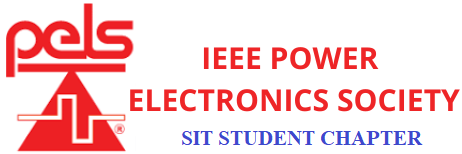About the Institution
Sri Sairam Institute of Technology
Sri Sai Ram Institute of Technology, an autonomous institution, is one of the honoured institutions, which stands as a sinew of splendour in the arena of education for a decade. This non-profitable and non-minority institution thrives tremendous opportunities parallel with many of the leading professional colleges across the country. Further, this prodigious institution is located in South Chennai, near the well-known fascinating Theme Park, “Kishkinta”. The Founder Chairman of this institution, MJF.Ln.LEO MUTHU, the Managing Director of LEO GROUP OF COMPANIES was an Indian philanthropist, educationist and businessman. As a philanthropist, he was a generous contributor to educational funding and scholarships for school and college students. In order to serve the society, particularly in the field of education, he founded the educational trusts with a motto
“To build a better nation through quality education.”
About IEEE
IEEE is the world’s largest professional association dedicated to advancing technological innovation and excellence for the benefit of humanity. IEEE and its members inspire a global community through IEEE’s highly cited publications, conferences, technology standards, and professional and educational activities.IEEE is the trusted “voice” for engineering, computing, and technology information around the globe.
There are more than 430,000 IEEE members in more than 160 countries. The IEEE publishes a third of the world’s technical literature in electrical engineering, computer science, and electronics and is a leading developer of international standards that underpin many of today’s telecommunications, information technology, and power generation products and services.
About IEEE PELS
The IEEE Power Electronics Society (PELS) is a professional organization dedicated to advancing the field of power electronics. PELS provides a platform for researchers, engineers, and practitioners to collaborate and share advancements in power electronics technology. With a focus on education, research, and industry applications, PELS contributes to the development of efficient and sustainable power conversion systems. The society organizes conferences, publishes journals, and fosters a global community of experts to address challenges and promote innovation in power electronics.
In striving to build knowledge and awareness of the latest technologies and other advances in power electronics, the PELS’s goal is to keep its members current and competitive in the workplace and provide them with the tools necessary to help them grow both personally and professionally. We invite you to join us and benefit from a world of invaluable information and support
IEEE PELS OBJECTIVE
The objectives of the Power Electronics Society (PELS) shall be scientific, literary, and educational. PELS shall advance the theory and practice of electrical and electronics engineering and the allied arts and sciences and it shall promote a high level of technical excellence among its members. PELS shall aid in promoting close cooperation and exchange of technical information among its members and affiliates, and to this end shall hold meetings for the presentation of papers and their discussion, sponsor periodicals and special publications, and study and provide the needs of its members and affiliates through its committees
FIELD OF INTEREST
The field of interest of the Society shall be the development and application of power electronic systems and technologies, which encompass the effective use of electronic components, the application of circuit theory and design techniques, and the development of analytical methods and tools for efficient electronic conversion, control, and conditioning of electric power to enable the sustainable use of energy.
Applications of Power Electronics:
- Automobiles
- Computer and Telecommunications Equipment
- Consumer Electronics Products
- Data Centers
- Industrial and Commercial Systems
- Lighting
- Mass Transportation
- Medical Devices
- Renewable Energy Systems
- Space and Military Systems
- Utility Power and Smart Grids

